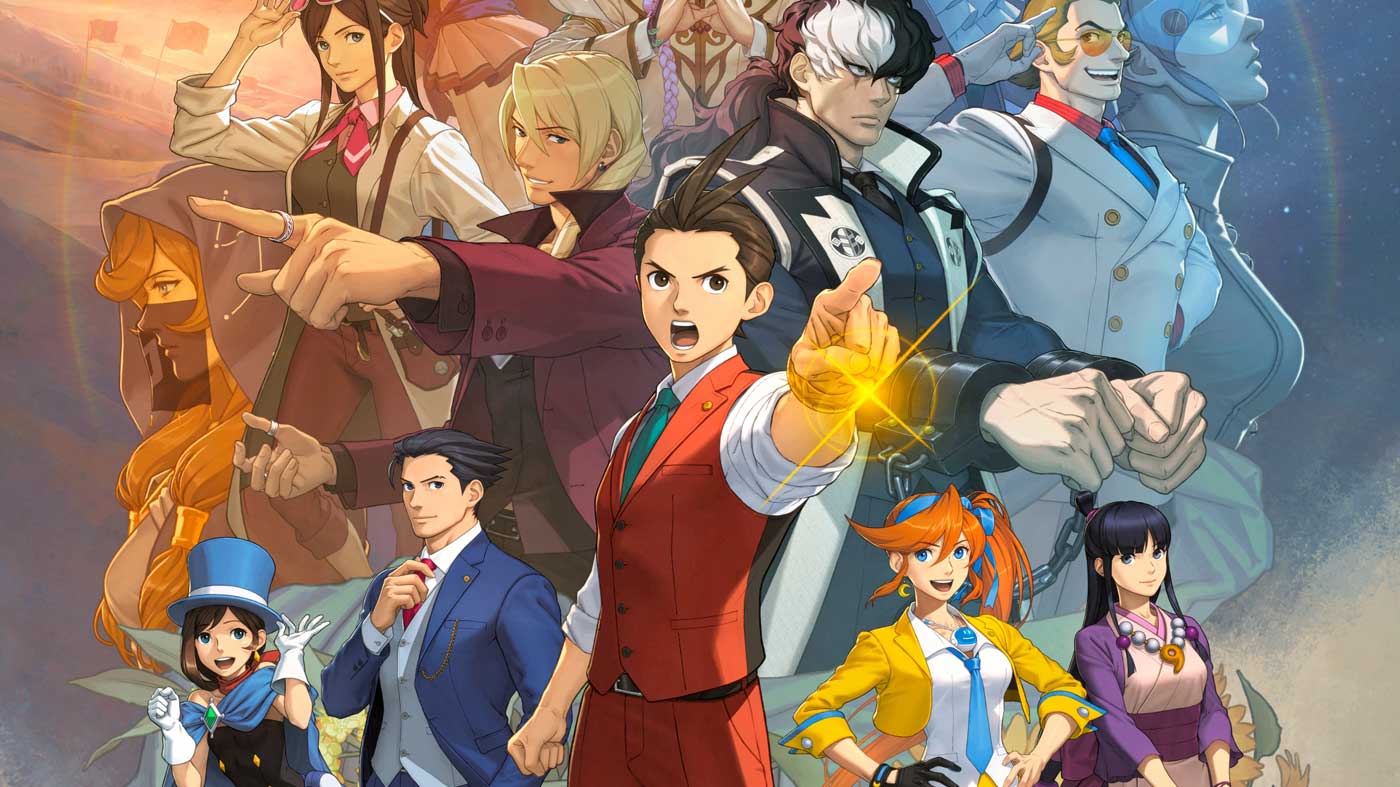I will continue saying it. Ace Attorney games are some of my favourites in Capcom’s repertoire. They take what is typically a mundane event from real life and turn the drama up to eleven to create something engaging that draws you in. They are some of the best games in the genre, with a degree of interactivity that adventure games typically eschew. However, three games have yet to receive the remaster treatment that the rest of the series has. That all changes now – and while these aren’t quite the most popular of the series, they’ve received the most care and attention in the jump to newer platforms.
Capcom has previously remastered many Ace Attorney games, including the original Ace Attorney trilogy and the pseudo-spin-off series The Great Ace Attorney. Apollo Justice: Ace Attorney Trilogy brings the first Apollo Justice game, Dual Destinies and Spirit of Justice, to modern platforms. But don’t be fooled – while the first game in this collection is all about series newcomer Apollo Justice, the other games focus on Phoenix and his friends, too.

For the unassuming, the Ace Attorney games have followed the same format for a long time. The general gameplay loop in each game has you split between investigating crimes and fighting for your clients in court. The games are linear affairs, with the story playing out regardless of how well you fight the cases for your clients. I often wonder whether the games would be more compelling if they were more open-ended, but so much of the storytelling is so tight that I can’t fault it for being so linear.
When you’re investigating, you’ll move from area to area, speaking to people and collecting evidence to help build a case for your client. These are pretty typical adventure game fare – you’ll select locations to move between, pose questions to ask and present items to characters to see if you can pick up any leads. They’re essential to establishing the stakes in the stories and highlighting the main conflicts between the characters, often setting up a whodunit situation that’s a joy to follow with the characters, too. These moments are arguably the “slower” part of the experience, but that’s only because the courtroom sections are incredibly compelling.
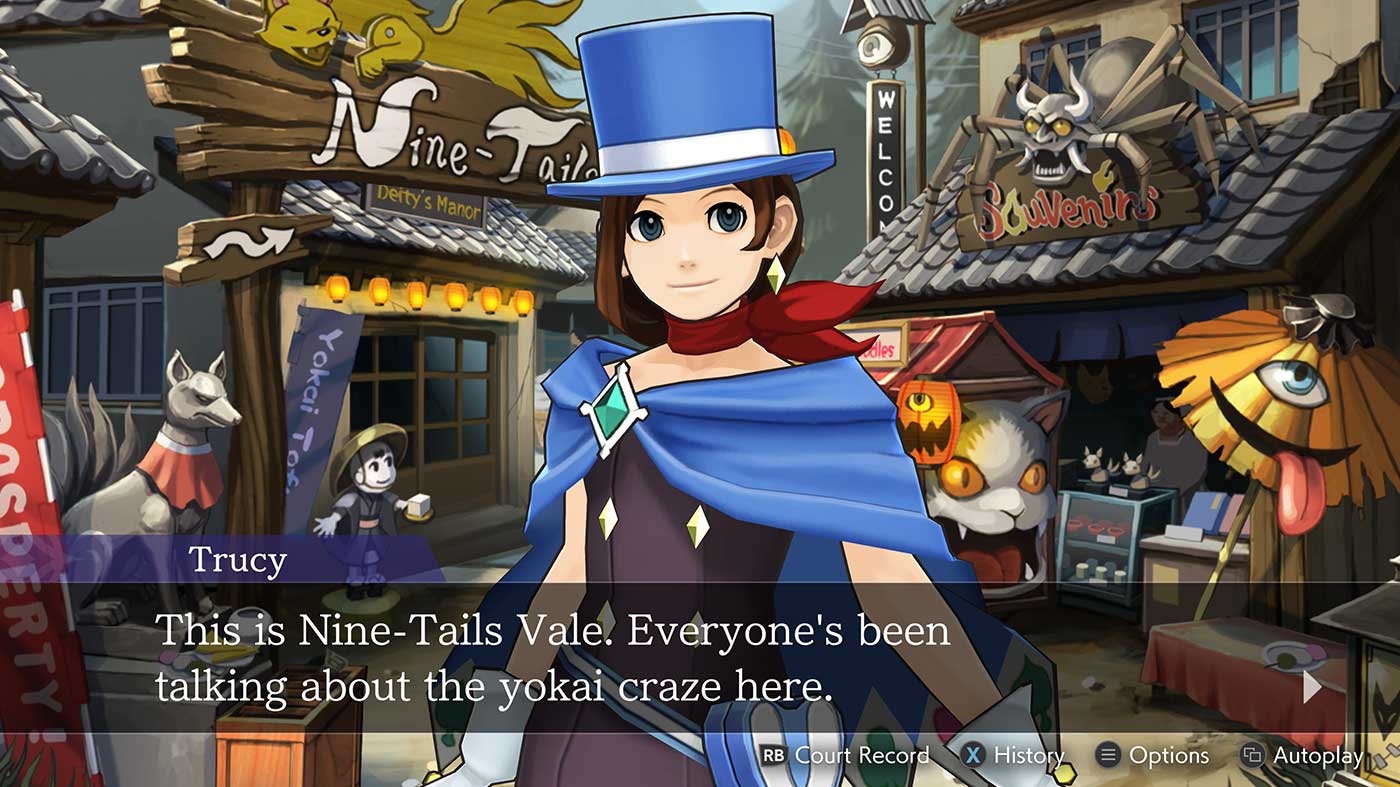
When you’re in court, witnesses will be called to the stand to testify. Their testimony is broken into smaller chunks of dialogue. Each piece of dialogue can then be “pressed” for further clarification, or you can present evidence that seemingly contradicts what they’ve said. Doing so often unveils further details about the case, leading to an acquittal for your client. It sounds simple on paper, but it’s presented in such a garishly overdramatic way that it’s hard not to build yourself up with hype as you take down a dishonest witness.
The games each introduced a new gimmick that also made the courtroom more enjoyable. Apollo Justice featured a “Perceive” mechanic, which had Apollo study body language in people to pick up nervous tics and establish when someone was lying. Dual Destinies delves more into the psychological side of the witness testimonies, requiring you to pinpoint which emotions are being faked in the “Mood Matrix” mechanic. Finally, Spirit of Justice has you performing seances, showing the final moments of a victim before their death, and picking contradictions in the insights that come from them. It’s a mix of gameplay mechanics that are admittedly a bit gimmicky but add variety to the proceedings.
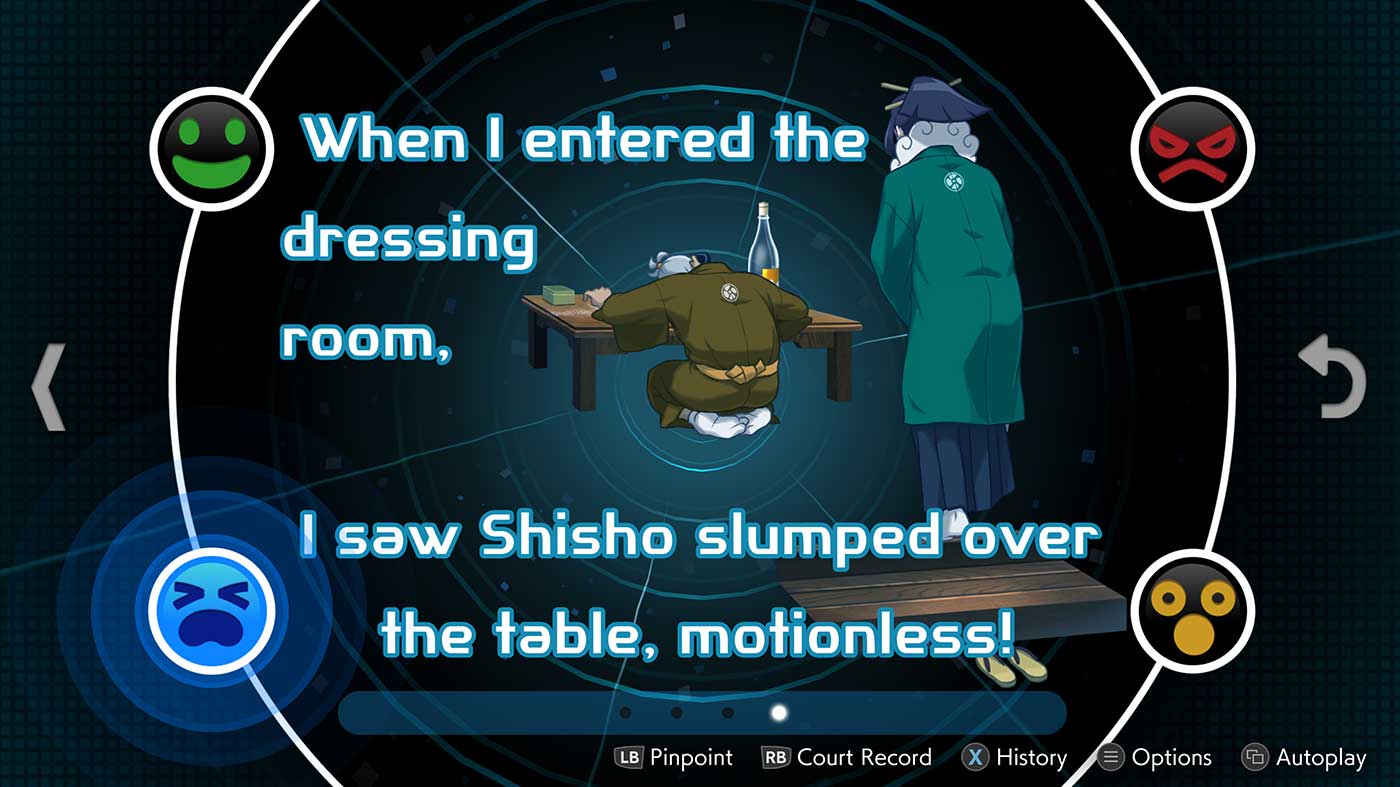
The question remains whether these games still stand the test of time, especially when compared to those created by the series creator Shu Takumi. These games are worth your time, even if others worked on them. They each have their issues, and there’s ostensibly a case that feels like filler in each of them, but the same can be said for the original games, too.
Each game has been brought over and scrubbed up to feel part of the same era. Visual improvements are apparent, though I’ll touch on those later. But fonts, menus and user interfaces have all been reworked to be consistent across every game. You can even jump straight into a case if it’s your favourite (and skip any that might not be).
Other accessibility options, both new and old, have been implemented too. Autoplay makes a return, allowing the action to play out automatically, pausing only when you have to make a choice or present some evidence. Those who speed read or are slower at reading can adjust how quickly Autoplay spits the text in each case.
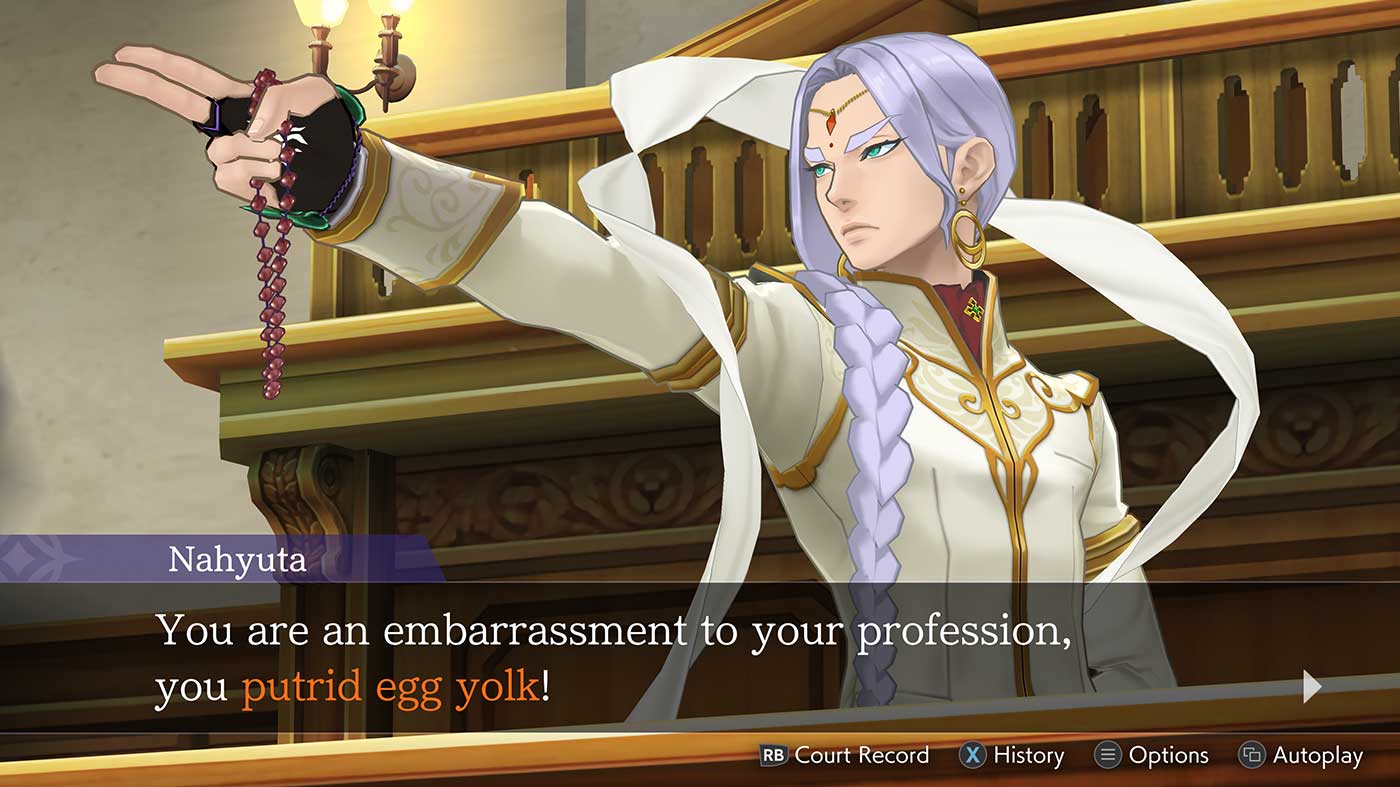
The other significant new mode is Story Mode. You’ll automatically progress through the game without pressing anything when playing in this mode. All answers and evidence are automatically presented for you. I mentioned in my preview that I’m sure this will upset some series purists, but if it means more players can experience these clever and humorous stories, then it’s honestly a good thing. It is worth noting that achievements and trophies are disabled in this mode.
The collection also includes a whole bunch of extras that many series fans will appreciate. The Orchestra Hall is a menu containing over 150 tracks from all three games. The Art Library is a collection of artwork from all the games that were almost lost to time. Animation Studio is the most interesting addition here – allowing you to choose characters, their poses and animations to create custom scenes. It’s a great idea on paper, but the lack of flexibility and inability to export your creations feels limited.
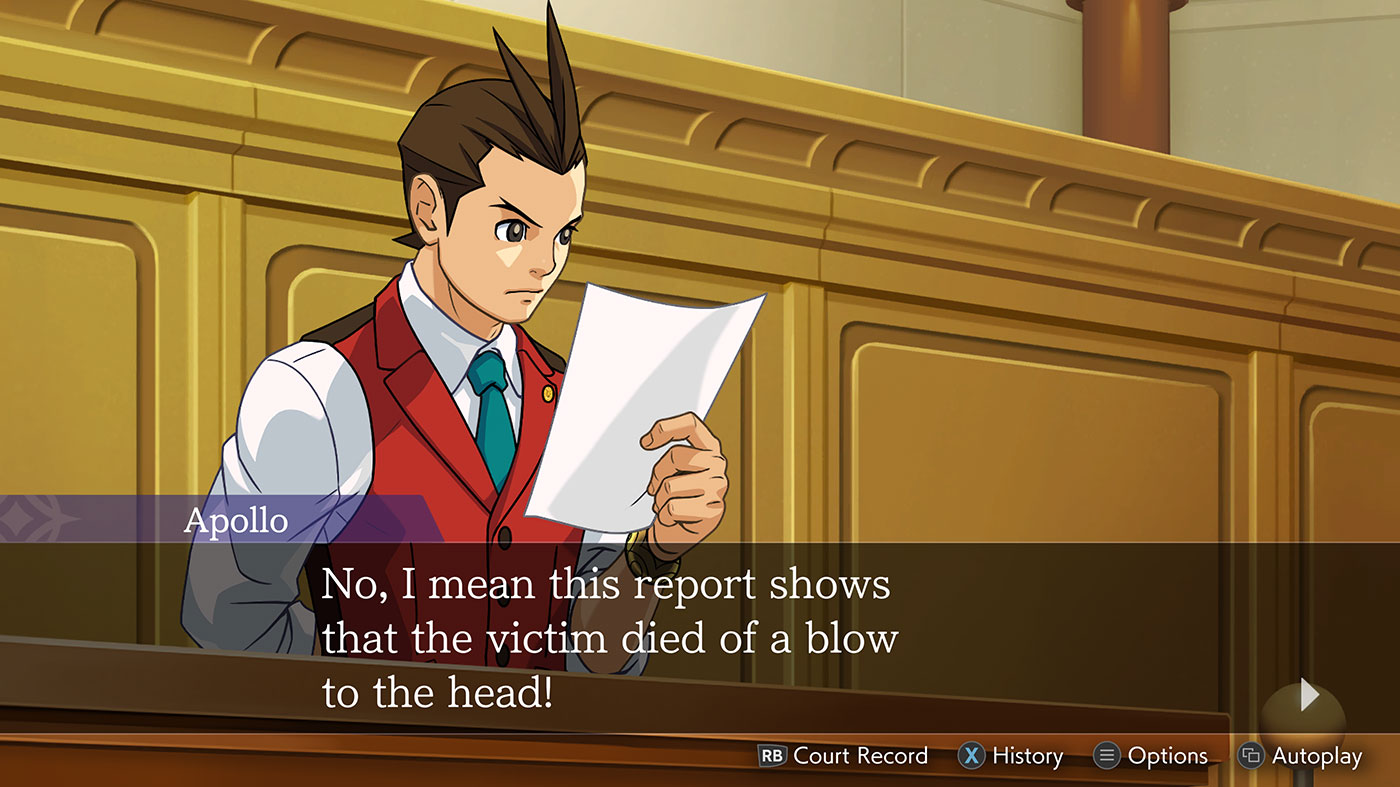
This is the first trilogy where the games included were released across multiple generations. As such, the first game in this collection utilizes the sprite-based 2D artwork, as featured in the first three games, while the other two feature the 3D models as seen in The Great Ace Attorney. The difference will always be contentious amongst fans, but the jump to these newer platforms is incredibly crisp, especially for Apollo Justice. Dual Destinies and Spirit of Justice look great, too, but the lower-quality texture work on some characters feels at odds with the game’s otherwise crisp presentation.



